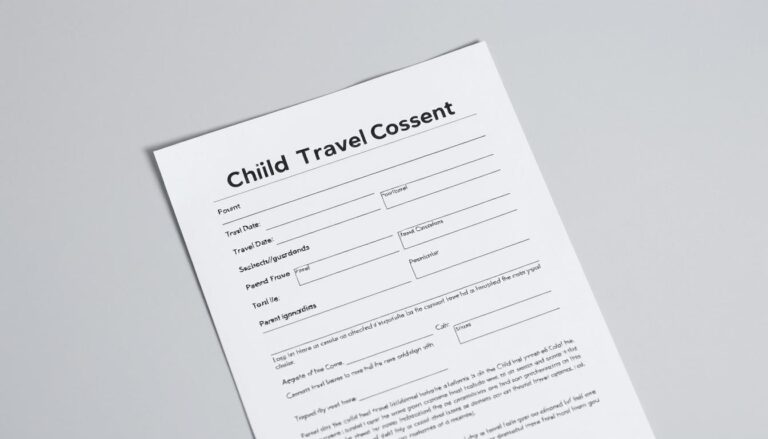Europe Freezes US Travel: What You Need to Know
Recently, European countries have put new travel rules in place for US visitors. If you’re thinking about going to Europe, it’s key to know what’s happening now. This will help you plan your trip better.
Travelers are facing new challenges because of these strict new rules. It’s important to keep up with the latest news. This way, you can make sure your trip goes smoothly.
Key Takeaways
- Understand the current travel restrictions imposed by European countries.
- Learn how the travel freeze affects your travel plans to Europe.
- Stay updated on the latest developments and changes in travel regulations.
- Discover the implications of the travel restrictions on your trip.
- Find out what you need to do to ensure a smooth journey to Europe.
The Current Situation: Europe Freezes US Travel
Europe’s travel freeze has left many wondering about their travel plans. Europeans and US citizens are looking for clear answers. They want to know how this ban will affect their future trips.
Overview of the Travel Freeze
The European travel ban on US travelers is due to health and safety concerns. It impacts tourism, business, and transit travel. It’s important for anyone planning to visit Europe to understand these restrictions.
Which European Countries Are Affected
Not all European countries face the same restrictions. Some have stricter rules, while others have exceptions. The affected countries include:
- Germany
- France
- Italy
- Spain
Timeline of Events Leading to the Freeze
The path to the US travel restrictions in Europe was complex. It involved many factors and announcements. Key moments include:
- Initial announcements by European governments
- Implementation dates for travel bans
- Updates on exemptions and special cases
Keeping up with these changes is crucial for travelers. It helps them adapt to the evolving situation.
Understanding the Reasons Behind the Restrictions
The travel ban from the US to Europe has several reasons. It’s not just one thing. It’s about public health, politics, and the economy.
Public Health Concerns
Public health concerns are a big reason for the ban. The pandemic has made us worry about new virus strains and healthcare systems. Dr. Maria Van Kerkhove, WHO COVID-19 Technical Lead, said travel bans can slow the virus. But they need to be part of a bigger health plan.
“The virus doesn’t respect borders, and neither should our response to it.”
Political Considerations
Political considerations also matter. The ban shows health worries and political ties between countries. Covid travel updates show governments trying to keep people safe while keeping diplomatic ties strong.
Economic Factors
Economic factors are important too. The ban affects airlines, tourism, and the economy. International travel latest news shows countries trying to lessen economic harm.
Comparison to Previous Travel Bans
Looking at past travel bans helps us understand the current one. Bans have happened during health crises before. But now, there’s also vaccination and testing. Knowing these differences helps us see how travel policies have changed.
As things keep changing, it’s important to stay up to date with latest international travel updates. This helps us understand the reasons for the ban and how it might change.
Scope and Duration of the European Travel Ban
Travel plans to Europe are uncertain due to the travel ban. Here’s what you need to know. The European travel ban is a response to global concerns. It affects travelers in big ways.
Knowing the scope and duration of this ban is key for planning trips.
Types of Travel Affected
The ban impacts different types of travel. Leisure travelers see their vacations disrupted. Business travelers face issues with meetings and conferences. Students planning to study abroad are also affected.
- Leisure travel: Vacations and personal trips
- Business travel: Conferences, meetings, and work-related trips
- Educational travel: Study abroad programs and academic exchanges
Expected Timeline for Restrictions
The ban’s duration varies by country. Some have temporary restrictions, while others have longer measures. It’s vital to keep up with the latest travel advisories for your destination.
| Country | Restriction Duration | Latest Update |
|---|---|---|
| France | Until further notice | March 10, 2023 |
| Germany | At least until April 2023 | March 15, 2023 |
| Italy | Until May 2023 | March 12, 2023 |
Differences Between Country Regulations
Though the European travel ban is unified, countries have their own rules. Some allow essential travel under specific conditions. Others have stricter rules.
It’s crucial to understand these differences. Travelers need to research the specific rules for their destination and any transit countries.
Immediate Steps for Travelers with Upcoming Plans
With the Europe freeze on US travel, it’s crucial to act fast if you’re planning to travel soon. The situation is changing, and knowing the latest us travel alerts and europe travel regulations is key.
Contacting Your Airline and Accommodations
First, reach out to your airline and accommodations to learn about their policies. Many airlines are offering flexible rebooking options or refunds. For example, Lufthansa is supporting passengers with flexible booking policies.
“We are working closely with the authorities to ensure compliance with the latest travel regulations while minimizing disruptions to our passengers.” – Airline Representative
It’s important to check your airline’s policy and know your options. Some airlines might give you vouchers for future travel, while others might offer full or partial refunds.
| Airline | Refund Policy | Rebooking Policy |
|---|---|---|
| Lufthansa | Partial Refund | Flexible Rebooking |
| British Airways | Full Refund | Rebooking Fee Waived |
| Air France | Voucher for Future Travel | Rebooking Allowed |
Understanding Your Rights as a Consumer
Knowing your consumer rights is essential. Read the airline’s contract of carriage and the terms of your booking. If you’re not happy with the airline’s offer, you might be able to dispute the charges or get a refund through your credit card company.

Documentation to Gather
It’s important to gather the right documents. You’ll need your flight itinerary, hotel reservation, and any communication with your airline or travel agent. Keeping records of your attempts to contact them can be helpful if you need to take further action.
- Flight itinerary
- Hotel reservation
- Communication records with airline/travel agent
- Travel insurance documents
Emergency Contact Information
Having emergency contact information ready is also crucial. Make sure you have your airline’s customer service number, your travel agent’s details (if you have one), and your accommodations’ contact information.
By taking these steps, you can better handle the challenges of the Europe travel freeze on US travel. Staying informed and proactive will help reduce the impact on your travel plans.
Impact on Different Types of Travelers
Europe’s travel freeze on US citizens has different effects on various travelers. It impacts not just those on vacation but also business travelers, students, and those visiting family or holding dual citizenship.
Tourists and Leisure Travelers
For those on vacation, the ban means trips to Europe might be canceled or delayed. Many are unsure about getting refunds or rescheduling.
- Check with your airline or travel agency for refund policies.
- Consider travel insurance that covers trip cancellations.
- Look into alternative destinations for your next trip.
Business Travelers
Business travelers are also hit hard by the freeze. Meetings, conferences, and other work activities may be canceled or done online.
Key considerations for business travelers:
- Communicate with your clients and colleagues about potential delays.
- Explore virtual meeting alternatives.
- Review company travel policies for guidance.
Students and Academic Travel
Students planning to study in Europe or join academic programs are affected. Universities and schools are trying to help.
Students should:
- Contact their university’s study abroad office for guidance.
- Understand the implications for their academic program.
- Explore alternative study abroad options.
Family Visits and Dual Citizens
Those planning to visit family in Europe or holding dual citizenship face unique challenges. The ban complicates family reunions and personal travel plans.
For dual citizens, it’s crucial to know the specific rules that apply. Checking with embassies or consulates can help clarify travel options.
Exceptions and Exemptions to the Travel Regulations
There are exceptions to the travel restrictions between Europe and the US. Knowing these exemptions is key for those who must travel during the freeze.
Essential Travel Categories
Some people are allowed to travel despite the restrictions. This includes:
- Medical professionals going to work or to help others.
- Transportation workers like airline staff and truck drivers, who keep supplies moving.
- Diplomats and government officials on official business.
To qualify, you need to show proof of your essential travel.
Diplomatic and Government Officials
Diplomats and government workers are usually not stopped by travel rules. This includes:
- Ambassadors and other diplomatic staff.
- Government workers on official tasks.
They must carry official ID and documents to prove their role.
Humanitarian Cases
There are also exceptions for humanitarian reasons. This includes:
- People dealing with a family emergency or helping others.
- Those seeking medical care not available at home.
You’ll need to provide proof of your humanitarian reason, like medical records or family documents.
How to Apply for Exemptions
To get an exemption, follow these steps:
- Collect the needed documents, like proof of essential travel or diplomatic ID.
- Apply through the embassy or consulate of your destination.
- Wait for a decision on your application.

For the latest on exemptions and how to apply, check official government sites and contact the right authorities.
| Exemption Category | Required Documentation | Application Process |
|---|---|---|
| Essential Travel | Proof of essential travel status (e.g., work contract, medical certification) | Submit application through embassy or consulate |
| Diplomatic and Government Officials | Official identification and documentation | Contact the relevant diplomatic mission or government department |
| Humanitarian Cases | Evidence supporting the humanitarian case (e.g., medical records, family emergency documentation) | Submit application with supporting documents to the relevant authorities |
Financial Implications of the Travel Freeze
The Europe travel freeze has big financial effects on your travel plans. It’s important to understand these impacts as you deal with canceled or postponed trips.
Airline Policies and Refunds
Airlines have different rules for refunds and cancellations. You should:
- Check your airline’s policy on refunds and travel credits.
- Understand the process for requesting a refund or credit.
- Be aware of any deadlines for submitting refund requests.
Some airlines offer flexible rebooking options or travel vouchers. It’s key to review these options to lessen your financial loss.
Travel Insurance Coverage
Travel insurance can protect you from financial losses due to unexpected events like the Europe travel freeze. Check your policy to see what’s covered, including:
- Trip cancellations or interruptions.
- Travel delays or disruptions.
- Medical emergencies or evacuations.
Some policies have special clauses for global health crises or travel bans. Knowing these details helps you make better travel decisions.
Additional Costs to Consider
There are more costs to think about besides airline refunds and insurance. These include:
- Accommodation fees or cancellation charges.
- Costs for rebooking travel arrangements.
- Potential losses from pre-paid tour packages or activities.
Keeping a detailed record of these expenses helps you track your losses. You might recover some costs through insurance claims or tax deductions.
Tax and Business Expense Implications
Business travelers or those with big travel expenses should think about tax implications. You should:
- Consult with a tax professional to understand potential deductions or credits.
- Keep detailed records of travel-related expenses for tax purposes.
- Be aware of any changes in tax laws or regulations that may affect your travel expenses.
Staying updated on europe travel news and international travel latest helps you deal with these financial issues. It aids in making smart choices about your travel plans.
Alternative Routes and Travel Options
The travel ban between Europe and the US has made people look for new ways to travel. They are now checking out different paths to get to their destinations.
Transit Countries and Layover Considerations
Traveling through countries not hit by the ban is a good idea. You need to plan your layovers well and know the visa rules for these places.
For example, if you’re flying from the US to Europe, think about stopping in Canada or Iceland. These countries might have their own rules.
Third-Country Quarantine Options
Some people are choosing to stay in quarantine in other countries. This way, they meet the health rules needed to enter Europe.
- Look into countries that require quarantine.
- Find out how long you’ll need to stay and what it’s like.
- Plan your trip carefully.
Digital Alternatives to In-Person Travel
Digital options can sometimes replace the need to travel. This includes virtual meetings for work and online classes for school.
Going digital can save money and be more efficient. It lets you reach your goals without having to travel.
When Postponing Is Your Best Option
At times, it’s best to delay your trip until it’s safe. This is true if you don’t have to travel right away.
Stay updated on the europe travel advisory and us travel alerts. This way, you can plan your trip when it’s safe to do so.
Health Protocols and Requirements
Planning your trip to Europe during the travel freeze requires understanding health regulations. Knowing the health protocols and requirements is key for a smooth journey.
Testing Requirements for Exempt Travelers
Exempt travelers must meet specific testing requirements to enter Europe. These rules depend on your country of origin and destination in Europe.
- COVID-19 Testing: Most European countries need a negative COVID-19 test result within 72 hours before arrival.
- Types of Tests: PCR tests are usually accepted. Some countries also accept antigen tests.
Vaccination Considerations
Vaccination status is crucial for travel eligibility. Being fully vaccinated can waive some restrictions. However, the accepted vaccines vary by country.
It’s vital to check the latest vaccination needs for your destination.
Quarantine Rules by Country
Quarantine rules vary across European countries. Some require quarantine upon arrival, while others do not.
| Country | Quarantine Requirement | Testing Requirement |
|---|---|---|
| France | Yes, for 7 days | PCR test on arrival |
| Germany | Yes, for 10 days | PCR test on arrival and after 5 days |
| Italy | No | Rapid antigen test on arrival |
Health Documentation Needed
Travelers must show specific health documents. This includes a negative COVID-19 test result and, sometimes, proof of vaccination.
- Digital Health Certificates: Many European countries accept digital health certificates as proof of vaccination or recovery.
- Language Requirements: Make sure your health documents are in the language of your destination, if needed.
Conclusion
With the Europe travel freeze still in place, it’s key to keep up with the latest news. The restrictions, due to the europe freezes us travel policy, affect many travelers.
You now know the current situation, why the restrictions are in place, and how to deal with them. Whether you’re traveling for fun, work, or school, staying informed is crucial. It helps you make the best choices.
To stay on top, check official government sites and trusted news outlets often. They provide updates on travel bans, exceptions, and health rules. This way, you can adjust your plans and avoid any big problems.
FAQ
What are the current Europe travel restrictions for US travelers?
Right now, there’s a freeze on non-essential travel to Europe from the US. Always check the latest updates on official government websites of the countries you plan to visit.
Which European countries have imposed travel bans on US citizens?
Countries like France, Germany, Italy, and Spain have banned US citizens. The rules change, so it’s key to stay updated.
How long are the travel restrictions expected to last?
The length of the restrictions varies by country and the COVID-19 situation. Keep up with the latest news and changes.
Are there any exceptions to the Europe travel ban for US travelers?
Yes, there are exceptions for essential travel. This includes diplomats, government officials, humanitarian cases, and some business travelers. Check the specific rules for your situation.
How do the current travel restrictions compare to previous travel bans?
The current restrictions are part of a trend of stricter travel rules due to COVID-19. Previous bans were also for health reasons, but the current ones have different specifics.
What should I do if I have an upcoming trip to Europe?
If you’re heading to Europe, talk to your airline and accommodations about their policies. Also, review your travel insurance and gather needed documents.
Can I still travel to Europe for business or academic purposes?
Business and academic travelers might get exemptions. But, the rules vary. Talk to your authorities and organization to figure out the best plan.
How do I apply for an exemption to the travel regulations?
For an exemption, you’ll need to provide documents and meet certain criteria. Check the official government websites and relevant authorities for more information.
What health protocols and requirements should I be aware of when traveling to Europe?
Know about testing, vaccination, quarantine, and health documents needed for Europe. The rules differ by country, so always check the latest info.
Are there any alternative routes or travel options available?
Yes, you can look into different routes or digital travel options. Also, consider if you can postpone your trip.
What are the financial implications of the travel freeze, and how can I manage them?
The freeze affects your wallet, including airline policies and refunds, insurance, and extra costs. Plan your finances to lessen the impact.






